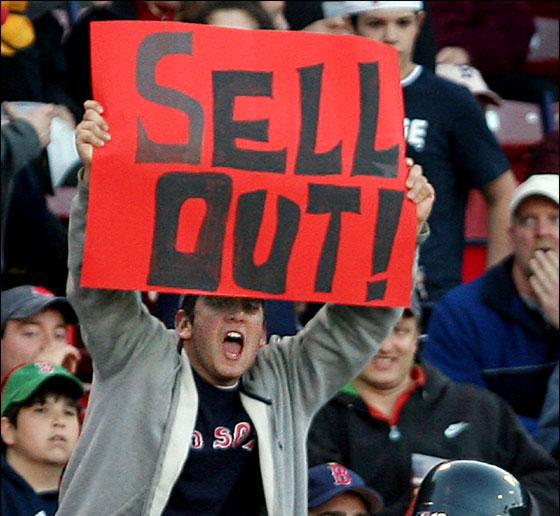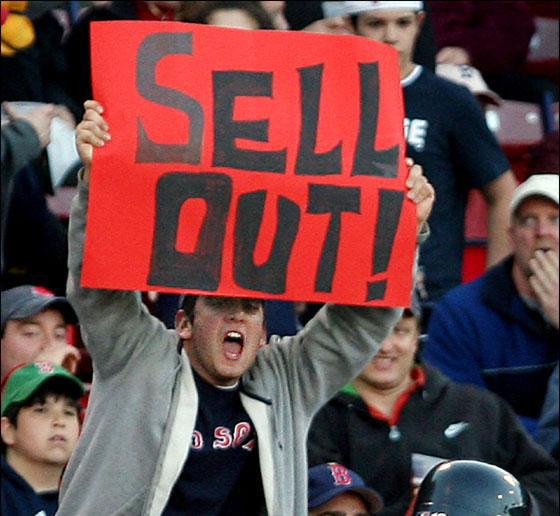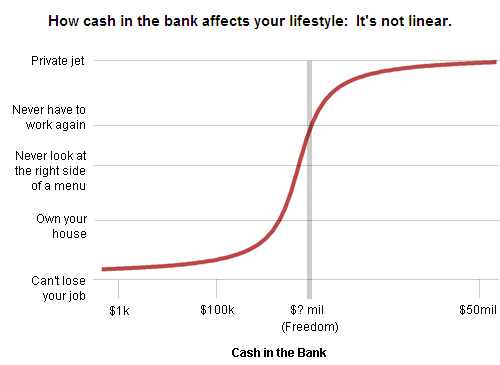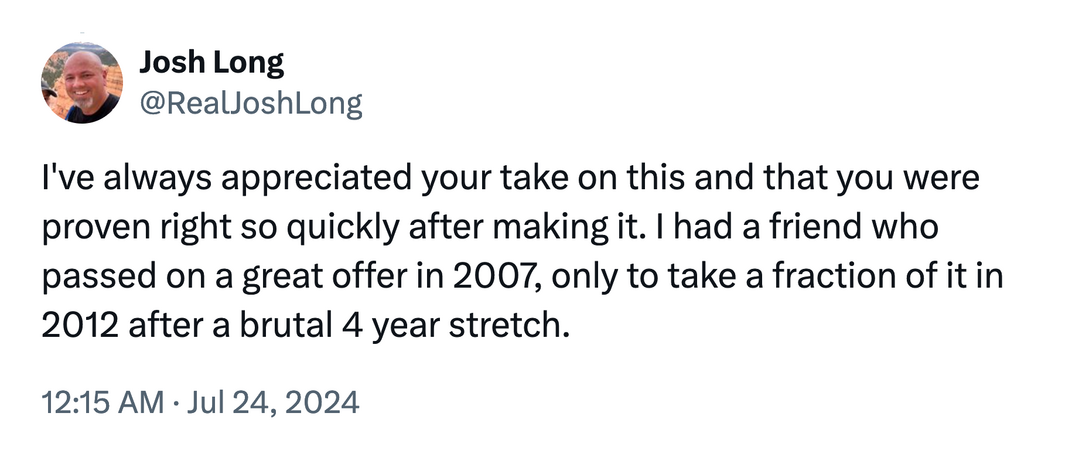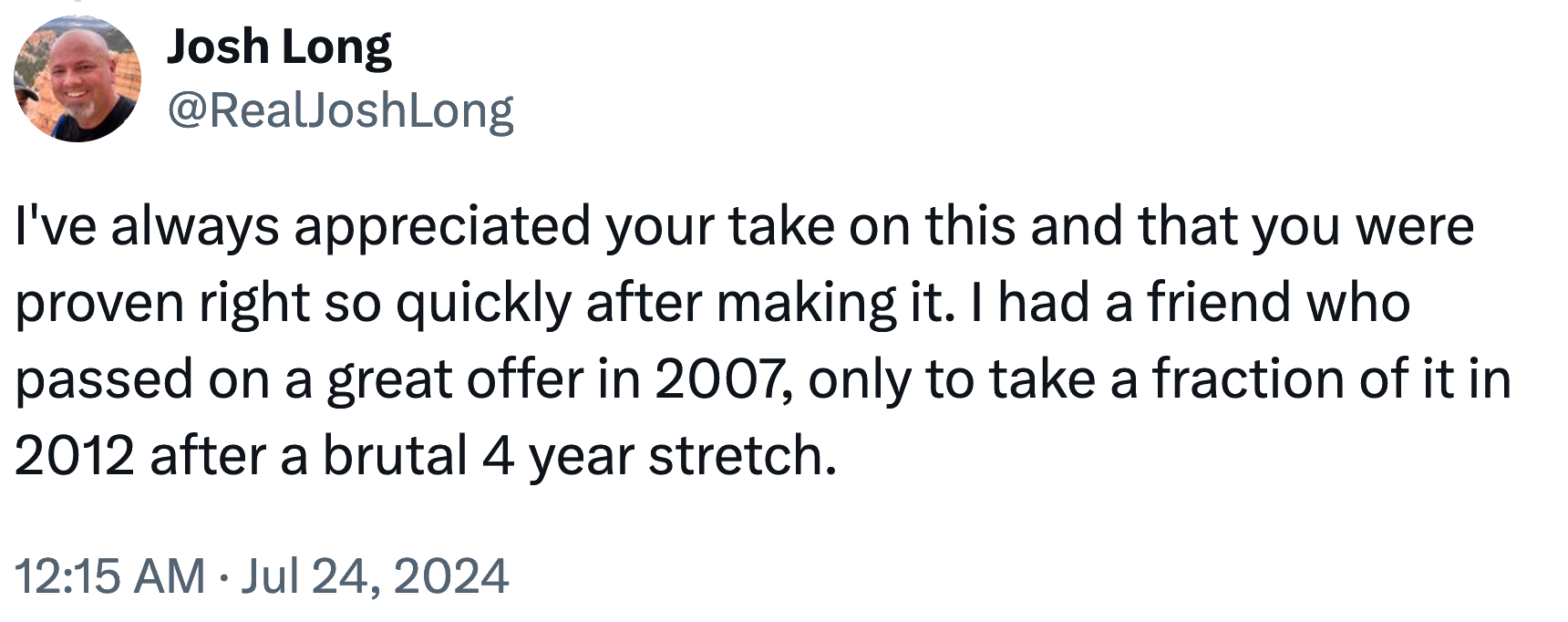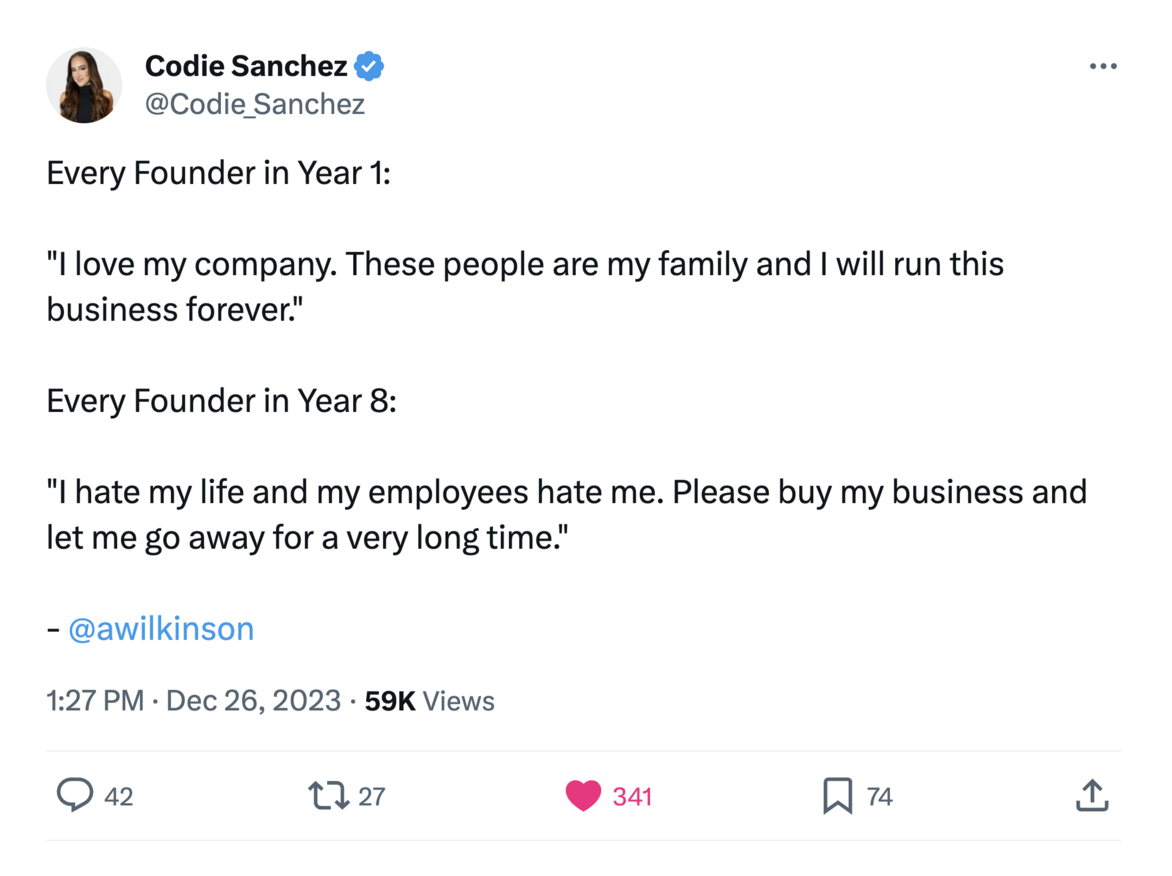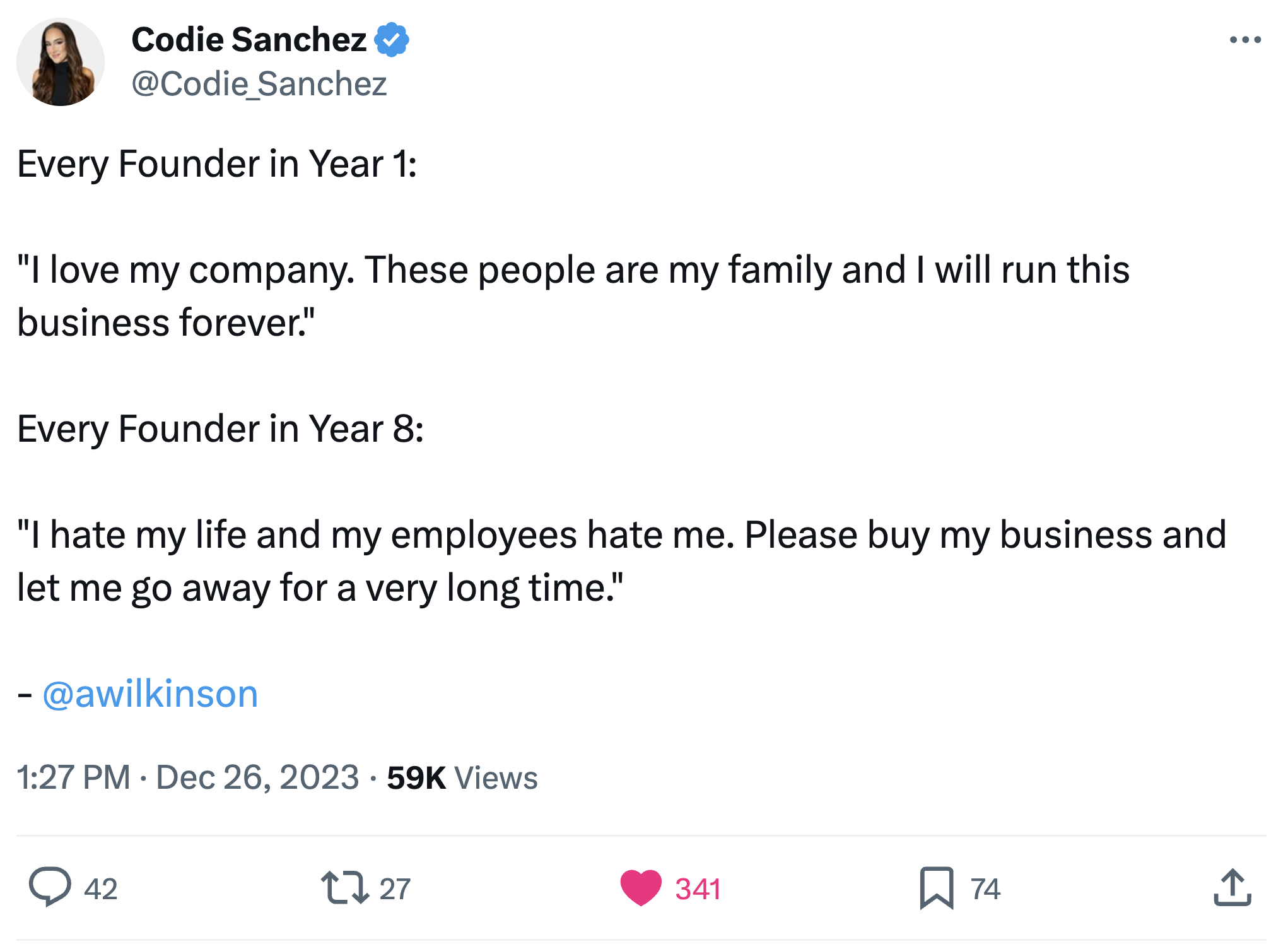Rich vs. King in the Real World: Why I sold my company
I sold my company, Smart Bear, in December of 2007. I haven’t talked about it at all on this blog, and it’s time I spill my guts about the whole affair.
You’d think selling a company would be a glamorous, exuberant experience, but I was surprised at the reactions I got. These are actual quotes:
- “How could you sell your baby? I’m shocked.”
- “I thought you said things were going well. Hmm.”
- “You’re such a sell-out! You used to be one of the few cool people I knew.”
Interestingly, 100% of the negative reactions were from people who had never started their own company. But that doesn’t make them wrong, and it doesn’t make their words sting less, especially when they’re your friends.
Now that almost two years have passed, I can relate exactly why “selling my baby” was right for me.
Hopefully this thought process is interesting to you and possibly useful in the happy event that you’re faced with the same choice, but the truth is I just need to get this off my chest.
I need to explain to those who still consider me a sell-out.
You may have heard Noam Wasserman’s “Rich or King” choice: Company founders are either in it for the money (“Rich”) or in it to build a lifestyle and personal identity (“King”). FogCreek and 37signals are built to be “King;” all venture-funded companies are built to be “Rich.”
Noam says that successful founders make the “Rich or King” decision up front, and that though it doesn’t matter which path you take, you must be consistent in your actions. You can’t mix “be king” tactics with “get rich” end goals.
Except I did mix “Rich” and “King,” and it worked.
See, it’s good to be “King,” but what do you do when you’re at Trudy’s “North Star” Tex-Mex Restaurant tucking into a Chile Relleno (with salsa verde, black beans, and the ground beef filling), and the guy across the table looks you in the eye and offers you enough money that you never have to work again?
I was always in it for the money, especially in the form of acquisition. Everyone who came to work at Smart Bear was indoctrinated with this attitude in no uncertain terms; even before hiring someone, I would tell them that we’re here to make money, and if someone offers to buy the company someday, I’m going to sell it, and all of us will make money.
Profit was the rule behind every choice we made. Although the end goal was always acquisition, my attitude was (and still is) that the best way to get yourself acquired is to be profitable.1 Profits prove the business is operating well. Profits validate the market. Profits make minimum valuation easy. Profits mean the buyer converts balance-sheet money into bottom-line profit-and-loss money—a trade every large company wants to make.
1 Editor’s Note: At this time the blog was written exclusively for bootstrappers with small companies. Obviously there are many examples of companies sold on the basis of growth or “daily active users,” but small self-funded companies are most attractive when they are cash machines.
Most of all, profits mean you don’t need to sell, which gives you the ability to walk away from a deal. You have little negotiating power in any deal unless you can happily walk away.
On the other hand, I knew I would only be happy building a genuine, great company, where the product solves a real pain, where customers are given white-glove service, where “tech support” is the only sales force, where we leave the world a little better than we found it, and where every employee is smart and gets things done and is trusted with any decision.
And I wanted the ego-inflating trappings of running a company. It’s cool at parties to say “I run my own company.” I wrote a book that got so popular (in my little corner of the world) that people would bring it up to me to sign. (We gave the books away for free so the joke was that by signing I doubled its value.) When I walked onto a tradeshow floor it was like Norm on Cheers—I knew everyone and they knew me. I got to present at cool venues like the Business of Software Conference.
And I write this blog, shamelessly exploiting Smart Bear’s success to convince you that I’m worth reading.
In short, although the goal was “Rich,” I achieved it by behaving like the goal was “King.” I don’t know why people find this contradictory; after all, acting like “King” means building a long-term, sustainable business, and that’s exactly the kind of business that gets acquired.
Still, because “King” was enjoyable and Smart Bear was profitable, I still need to explain why becoming a “sell-out” was the right choice.
The first thing to understand is the non-linear relationship between “cash in personal savings” and “financial freedom”:
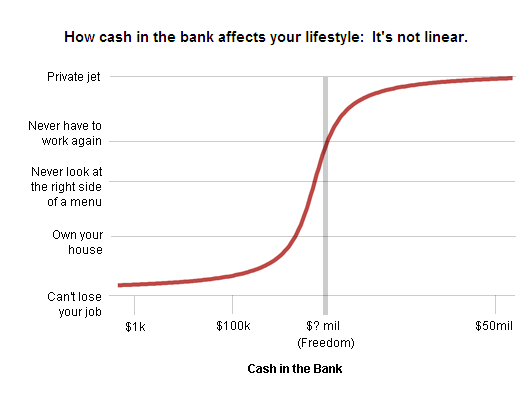
Figure 1
There’s a line you cross where your savings alone will fund a reasonably lavish lifestyle. At the risk of sounding like George Bush, this is a Freedom Line—freedom from restrictions about what you can do with your life, family, and career.
My observations:
- A movement from left of the line to right of the line changes your life fundamentally, giving you the freedom to do whatever makes you happy, forever.
- If you’re crossing from left to right, it doesn’t matter how far to the right you go. (Sure, $100m is a different lifestyle than $10m, but it’s not as critical to lifestyle or happiness as just crossing the line.)
(1) is what was offered to me at Trudy’s Tex-Mex. (2) means it almost didn’t matter what the offer was, so long as it was big enough.
Some people gave me a hard time about (2). The typical argument was:
Your company is growing 100% year over year. It’s profitable and throwing off cash. Why not wait another year and let revenues double again, which will make the company six times more valuable (assuming 3x revenue valuation, a reasonable ballpark for a growing software company).2
2 Editor’s Note: This was written in 2009; In 2023, a 5x-10x multiple on this type of company at that growth rate and profit is reasonable.
Here’s the best analogy I’ve come up with to describe why this is flawed logic. It’s called the Box Game:

Imagine I have two opaque boxes. Box A contains $10. Box B has a 50% chance of containing $20, and a 50% chance of containing nothing at all. You pick either box and take whatever’s inside. Which box do you pick?
Of course statistically there’s no difference, so this isn’t a question of math or economics or intelligence; it’s a measure of your attitude towards risk.
Most people pick box B. After all, the difference between $10 and $20 is trivial and it’s more fun and exciting to pick B.
But what if the numbers were different?
Now box A holds $10,000,000. Box B either holds $20,000,000 or nothing, 50/50 chance. Which do you pick?
You pick box A. Of course! Because it moves you from the left of the Freedom Line to the right. And because a “chance of moving even further” isn’t worth giving up the certainty of that life-altering event.
This is my argument in favor of #2 and against “wait and see.” This is why I sold.
In my case, the correctness of my choice was made painfully clear by the economic crash in 2008. Had I held out for “another year and far more money”—box B—I would have found an empty box.
I know this for a fact—another company (can’t say who, sorry!) was offered a deal at the same time I was. This founder wanted to roll the dice (box B) and delayed the buyer. Two quarters passed and revenue failed to grow; the buyer nixed the deal. Months later with the recession in sight, the founder approached the buyer again, this time willing to accept a low offer. The buyer refused; that ship had sailed.
And I’m not the only one:
Figure 2
Of course there are also those for whom this calculus doesn’t apply because they want to be “King” no matter what. I’ll bet Jason Fried wouldn’t sell 37signals for $100,000,000; neither would Joel Spolsky sell FogCreek. Are Joel and Jason being irrational? Of course not.
But neither was I. Most of us are like me, and Codie, and Andrew:
Figure 3
As of December 2007, I have the freedom to work on any project I want for the rest of my life while simultaneously providing for my family, never again worrying about bills, debt, having a place to sleep, or sending our daughter to any college she wants.
I can stay home with my wife and new baby girl for as long as I want, having all the precious time and experiences and memories that they say money can’t buy.
But, in the sense of securing that freedom, it can.
And by crossing the line, I did.
https://longform.asmartbear.com/rich-vs-king-sold-company/
© 2007-2026 Jason Cohen
 @asmartbear
@asmartbear ePub (Kindle)
ePub (Kindle)
 Printable PDF
Printable PDF
